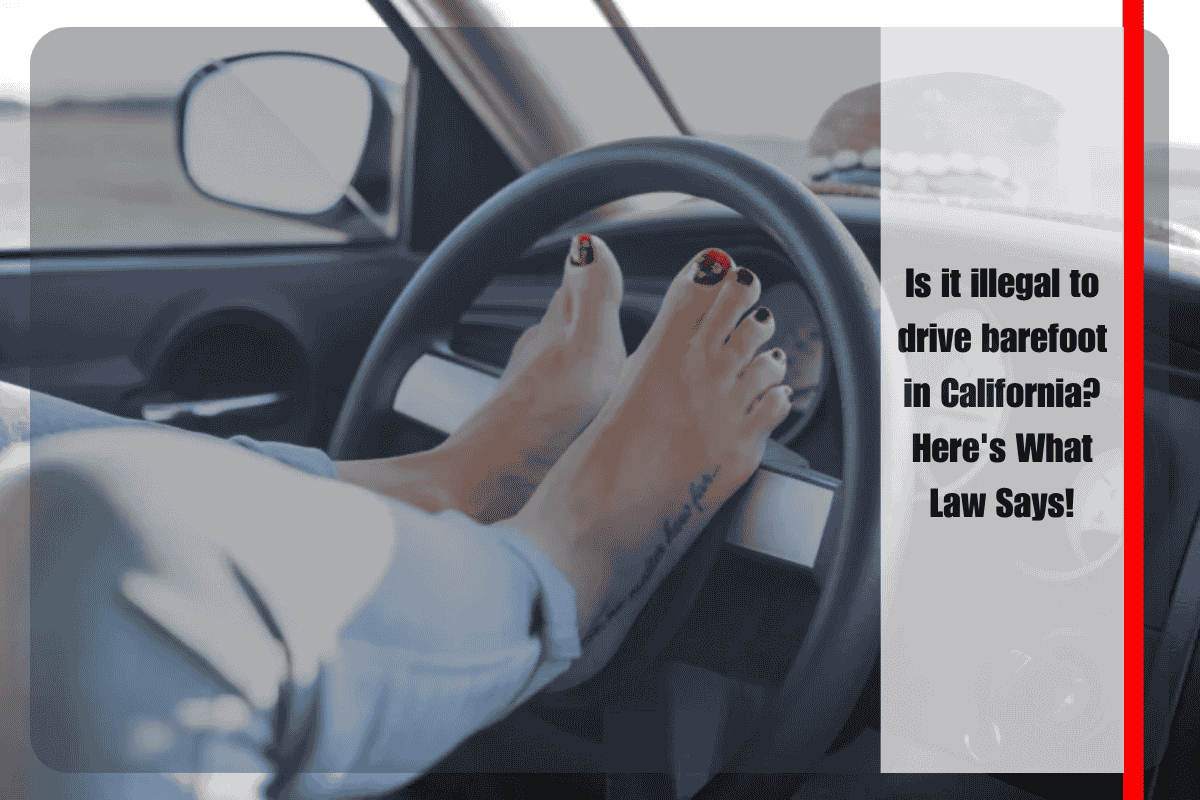Driving barefoot in California is a topic surrounded by persistent myths and misconceptions, but the law is clear: it is not illegal to drive without shoes in California. Many drivers mistakenly believe that state law requires them to wear footwear while operating a vehicle, but this is simply not the case. There are no provisions in the California Vehicle Code, nor any federal regulations, that prohibit drivers from being barefoot behind the wheel. The California Highway Patrol (CHP) has publicly addressed this issue, confirming that driving barefoot is perfectly legal and that law enforcement officers cannot issue tickets specifically for driving without shoes.
The origins of this misconception are likely rooted in safety concerns rather than legal requirements. Some people assume that because driving barefoot may be less safe, it must be illegal. While it is true that driving without shoes can present certain risks—such as reduced pedal control, slippery feet, or increased risk of injury in the event of an accident—these concerns are not addressed by California law. Instead, the law focuses on the broader duty of care that all drivers owe to others on the road, requiring that they operate their vehicles safely and responsibly.
Safety experts and legal professionals often advise against driving barefoot, pointing out several potential hazards. For example, bare feet can slip off pedals more easily than shod feet, especially if they are wet or sweaty. This can make it harder to brake or accelerate quickly in an emergency. Additionally, driving without shoes exposes the feet to potential injuries from sharp objects or debris inside the car, and in the event of a fire, shoes can provide important protection from burns. Despite these risks, the decision to drive barefoot is ultimately left to the individual driver’s discretion.
It is worth noting that while driving barefoot is legal, it can still have legal implications if an accident occurs. If it is determined that a driver’s lack of footwear contributed to the accident, they could be found partially at fault. This could affect the outcome of insurance claims or legal proceedings, even though the act of driving barefoot itself is not a violation of the law. Insurance companies may argue that the driver was negligent for not wearing appropriate footwear, which could impact compensation or liability.
The legality of driving barefoot is not unique to California. Across all fifty states and the District of Columbia, there are no laws specifically requiring drivers to wear shoes while operating a vehicle. Some states may mention the practice in safety guidelines or recommend against it, but none prohibit it outright. In California, as elsewhere, the law is silent on the matter, leaving the decision to the driver.
California law does not prohibit driving barefoot. The state’s approach is to encourage safe driving practices without mandating specific footwear. While driving without shoes is legal, it is generally not recommended due to the increased risk of accidents and injuries. Drivers should use their best judgment and consider the potential consequences of driving barefoot, both for their own safety and the safety of others on the road.
Sources
[1] https://www.eastonlawoffices.com/blog/is-it-legal-to-drive-barefoot-in-california/
[2] https://maho-prentice.com/blog/is-it-illegal-to-drive-barefoot-in-california/
[3] https://cdllife.com/2023/chp-sets-the-record-straight-on-driving-barefoot/
[4] https://fieldinglawfirm.com/is-it-legal-to-drive-barefoot-in-california/
[5] https://lacenturylaw.com/is-it-illegal-to-drive-barefoot-in-california/












